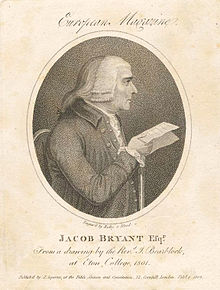Some stray notes.. from 1894
The extract below is from a short book titled Some stray notes upon Slough and Upton, collected from various sources, published in 1892
On the south-west side of Slough we come first to Chalvey, a very dusty and unhappy-looking village, but its brook, which flows to the Thames through the playing-fields, bears the repute of producing excellent eye-water : Oueen Anne and Queen Charlotte used to have the water brought up to Windsor in buckets.
Cippenham lies a little further on the same road, where are the remains of an ancient Danish camp, discoverable now only by the assistance of the Ordnance map. Jacob Bryant, the antiquarian and mythologist (and a schoolfellow of Gray), resided at Cippenham.
Cippenham was in early days a place of considerable importance, and was a royal residence of the Mercian Kings, and of the early monarchs of the Norman line, who frequently came here by river. On one occasion seven watermen were paid a penny apiece for bringing the King (Edward II) to Cyppenham from Shene.
There is now no remains of the chapel at Cippenham, which was granted by Edward III. to the Abbess of Burnham.
In later years the stream was diverted, and Cippenham Park broken up.
There are also an interesting footnote reference about Jacob Bryant
The King (George III) and Queen (Charlotte) were both frequent visitors at Cypenham, and rejoiced in him — the King sometimes came alone and passed hours with him.’ — Nichols’s ‘Literary Anecdotes,’ vol. viii., p. 53 1. Sec also Cole’s MSS., November 26, 1774.
The notes were collected, edited and published by Richard Bentley (1854-1936) who conveniently enough was a publisher by trade. He was head of the firm Bentley’s, started by his grandfather, which published works by, among others, Dickens and Disraeli. Bentley lived in Slough from age six. He had The Mere in Upton Park built as his family home.

Jacob Bryant (715-1804), perhaps the only image of an 18th Century resident of Cippenham
The entertainer of George III at Cippenham, Jacob Bryant was an antiquarian and mythologist. His major work was on postulations of the interrelations of early religious ideas and texts. He died at Cippenham in 1804.

Leave a Reply